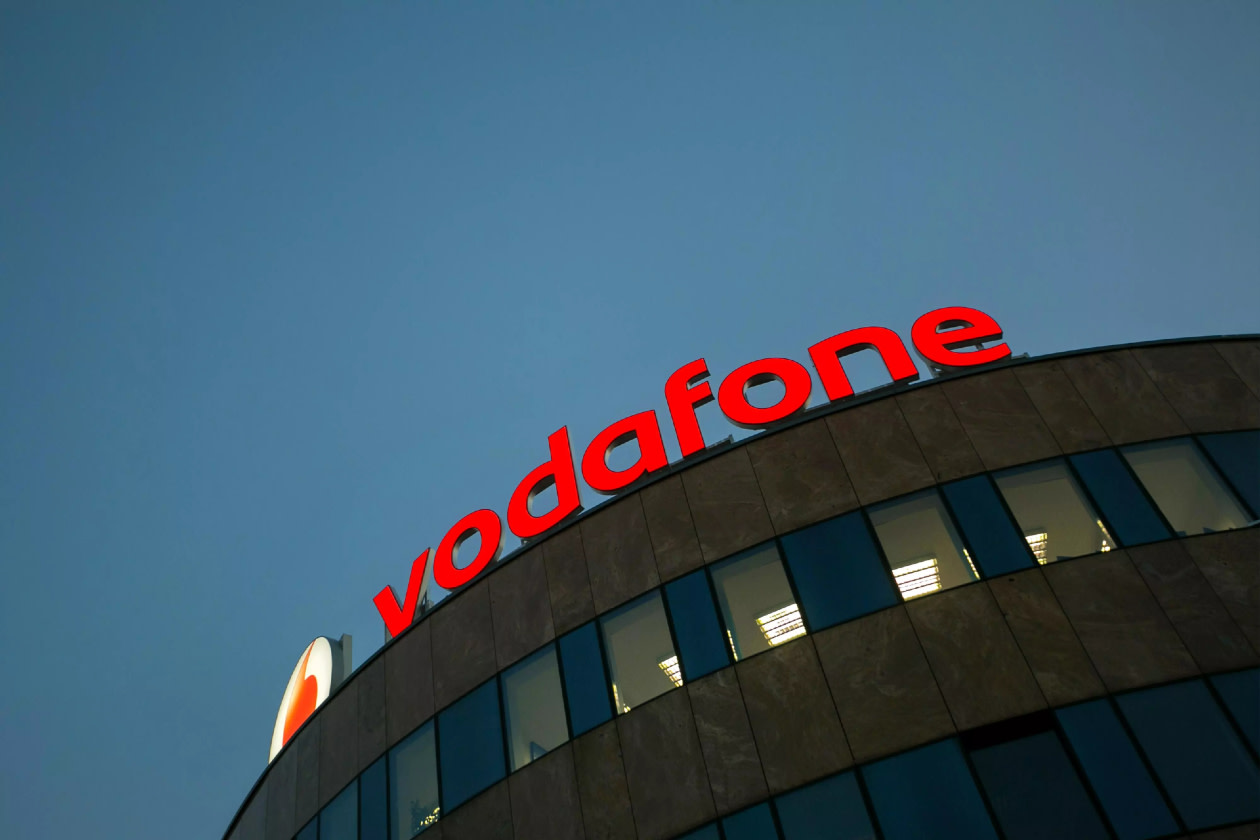Vodafone reported a 7.3% rise in first-half revenue to €19.6bn. Service revenue rose 5.7% organically to €16.3bn, with a return to growth in Germany over the second quarter.
Underlying cash profit (Adjusted EBITDAaL) grew 6.8% organically to €5.7bn. There was a free cash outflow of €0.8bn, an improvement of €0.3bn. Net debt ended the period at €25.9bn.
A dividend of 2.25 eurocents was announced and €3.0bn of its €4.0bn share buyback programme is complete, with the next €500mn tranche commencing today.
Full-year guidance has been tightened to the upper end of the prior range, with underlying cash profit expected between €11.3–11.6bn and underlying free cash flow between €2.4–2.6bn. Vodafone also introduced a new progressive dividend policy, targeting a 2.5% increase this year.
The shares rose 6.6% in early trading.
Our view
Vodafone put on a confident face this morning, unveiling a new progressive dividend policy and guiding to the top end of expectations – the first signal that its self-declared growth phase is gaining traction. With pressure mounting ahead of the print, the return to service revenue growth in Germany marks the first baby step in turning around its largest market.
Sales in the telecom sector should be relatively robust, as broadband and mobile services are hardly optional. Yet, over the last decade, telecom giants have had to pump huge sums of cash into building out fibre networks and snapping up parts of the 5G spectrum. The main challenge has been the low sales growth relative to spending when you look at telecoms compared to other sectors.
In response to several years of underperformance, Vodafone has an evolved strategy. There are job cuts, the merger of its UK business with Three UK (now complete), and sales of the underperforming Spanish and Italian divisions.
We welcome the change, but there's a lot to do.
Germany remains Vodafone’s toughest nut to crack. After hefty investment, the market has been slow to deliver, and execution missteps in recent years have compounded the challenge. Regulatory changes and last year’s price hikes left Vodafone on the back foot, and while service revenue finally eked out a sliver of growth in the second quarter. Sustained growth – not just a single quarter of marginal progress – will be the real test.
Outside Europe, the Vodacom subsidiary has some exciting growth opportunities in Africa and has upgraded cash profit growth targets to double-digit rates over the next few years. Africa could become increasingly important as the region develops, and Vodafone's leading position in several markets means it's well-positioned to benefit.
Asset sales and a focus on debt reduction have improved the balance sheet in recent years. There’s still a lot of debt, but cash flows are good, and the more positive outlook means the dividend is seeing some attention. Plans to slowly growth the dividend will come as welcome news given its importance to the investment case – though there are no guarantees.
All-in-all then, while we think the portfolio changes and new strategy make sense, the fundamental challenges that go with being a telecom remain. And with growth hard to come by, we'll need to see sustained positive progress in key markets before getting too excited.
Environmental, social and governance (ESG) risk
The telecom industry is low/medium in terms of ESG risk. Data privacy and security is the most significant risk driver, not only because customers are increasingly concerned about privacy, but also because cybersecurity breaches can be costly. Product quality is another key risk, particularly given the networks they manage are considered critical infrastructure. Carbon emissions, human capital and business ethics are also risks worth monitoring.
According to Sustainalytics, Vodafone’s management of material ESG issues is strong.
Vodafone has a board-level ESG committee to oversee its ESG program and track key targets. Executive pay is partly based on ESG performance, with a 10% weight in long-term incentives. The company is certified for information security management, meeting industry best practices. Vodafone also has a third-party ethics hotline for anonymous reports and a specialist team for negotiations. However, the company has faced regulatory scrutiny and fines for quality and safety issues, indicating possible gaps in product governance.
Vodafone key facts
All ratios are sourced from LSEG Datastream, based on previous day’s closing values. Please remember yields are variable and not a reliable indicator of future income. Keep in mind key figures shouldn’t be looked at on their own – it’s important to understand the big picture.
This article is original Hargreaves Lansdown content, published by Hargreaves Lansdown. It was correct as at the date of publication, and our views may have changed since then. Unless otherwise stated estimates, including prospective yields, are a consensus of analyst forecasts provided by LSEG. These estimates are not a reliable indicator of future performance. Yields are variable and not guaranteed. Investments rise and fall in value so investors could make a loss.
This article is not advice or a recommendation to buy, sell or hold any investment. No view is given on the present or future value or price of any investment, and investors should form their own view on any proposed investment.


